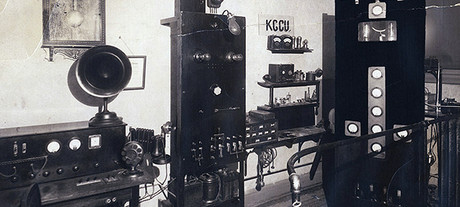Are we learning from the past?

At a time when there are so many changes happening in our industry and in technology in general, we need to ask ourselves — are we learning from the past as we plan for the future? It is very important that we examine past mistakes and learn from them so we don’t continue to make the same errors again. Consider a couple of current situations.
Review of the Radiocommunications Act. The federal government has put much emphasis on the fact that working with regulators should be a simple exercise and involve fewer restrictions than in the past — a great philosophy. The concern comes when we look back at the 1992 version of the Act. It was designed for its era, yet as we have progressed well beyond two decades since, many of its sections are no longer operating as they should.
As we look towards the present review, there is emphasis on allowing the market to decide outcomes — again, a good philosophy. When this is combined with a government goal of reducing the resources dedicated to governing and regulating — with the aim of putting much of the responsibility back onto licensees and industry — there has to be a workable set of principles and regulations in place to ensure the goal can actually be achieved. Without operable guidelines and a strong enforcement regime, the end result will be a polluted spectrum.
Mobile broadband. Many industries are heading towards using mobile broadband for productivity gains; a real benefit of the technology. At present, the idea of moving business-critical operations onto commercial carrier networks remains a concern. The answer, in many cases, would seem to be private networks, where the user has control over the resiliency and redundancy of the system… which is the case with most extant LMR networks. There are ways to ameliorate these concerns; however, there has to be spectrum available, a difficult yet not insurmountable problem.
The lesson for our industry is to look to the past. When mobile phones were introduced, everyone said LMR was dead, or would be shortly. Yet here we are a couple of decades later still going strong. The lesson is that if people in our industry embrace new technologies and combine them with existing business operations, they will not only survive, they will prosper. Private LTE networks are going to rely heavily on local knowledge for system design and operations, and the current suppliers know the topography and users’ needs. So why not be involved in the move towards LTE and maintain the client?
As a ‘grumpy old man’ I have been fortunate to see many changes in technology. I began my trade in the valve era, learned to work with solid-state devices and eventually recognised some of those ‘big black postage stamps’ in modern equipment. Even though some components now defy my eyesight, many of the main factors still remain. Radio waves still operate the same way, they follow the same laws of physics. LTE signals are the same, only the transmission frequency and modulation are different. We can all still learn about these things — I have, so you can too. Your knowledge is still very valuable, so don’t be afraid to use it and you will find that these new technologies are not so frightening after all.
RFUANZ report: setting the frequency for success in 2025
Last year brought a lot of internal change for RFUANZ, but the association has hit the ground...
ARCIA update: an extended event calendar for 2025
With the addition of Tasmanian events and a conference in Adelaide in September, 2025 will see...
ARCIA update: plans for 2025
ARCIA will be holding a mixture of workshop, conference and networking events in 2025, in the...





